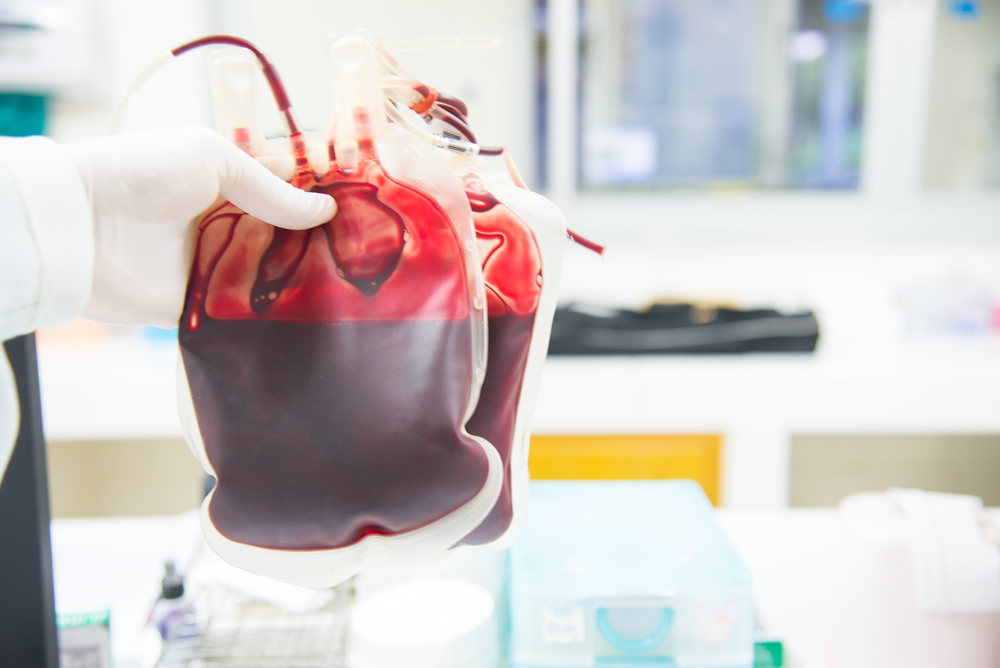The NIHR has awarded three new Blood and Transplant Research Units (BTRUs) to the University of Oxford.

The £20m programme, co-funded by the National Institute for Health and Care Research (NIHR) and NHS Blood and Transplant (NHSBT), are aimed at providing new technologies, techniques or insights that will benefit donation, transfusion, and transplantation, and that can be delivered at scale by NHSBT, helping to save and improve lives.
Much of this work will focus on reducing disparities and improving access to new treatments for all patients.
Five new BTRUs were launched in total. The three units at the University of Oxford are Precision Cellular Therapeutics, Data Driven Transfusion Practice and Genomics to Enhance Microbiology Screening.
Precision Cellular Therapeutics
This unit, led by Professor Ronjon Chakraverty at the MRC Weatherall Institute of Molecular Medicine aims to develop new kinds of cell therapies for blood disorders and blood cancer, and improved systems for following up patients receiving treatment to better support their care.
This research programme plans to:
- Find better ways of getting stem cell and immune cell grafts to eliminate blood cancer without causing graft-versus-host disease
- Make immune cells that are more effective
- Use novel methods to expand stem cells in the lab so we can treat more patients with cord blood
- Safely modify stem cells so they work better and can be used to make other blood cells
- Better ensure all patients in all communities are getting the same access to transplants and new cell therapies
- Use new mobile technologies for patients so that they and their doctors can monitor symptoms and side effects of cell therapy, and better support their care out-of-hospital.
Research lead Professor Ronjon Chakraverty said: “Our programme seeks not only to accelerate translation of novel cellular therapies into the clinic, but also to increase their accessibility. We want to better understand the impact of these new technologies from the patient perspective.”
Find out more about Precision Cellular Therapeutics.
Data Driven Transfusion Practice
Blood transfusion is a common procedure carried out in hospitals with nearly 2 million blood components transfused in England each year at a cost of more than £300m.
Used to best effect, these play a vital role in saving lives, but repeated analyses show large gaps between recommended and actual transfusion practice. Unnecessary transfusions put patients at risk of adverse effects and are a waste of a limited resource.
In addition, blood services often find it difficult to predict how much blood hospitals need. With collaborators across the UK, the Oxford team will seek to accelerate the development of data-driven methods to optimise blood use and integrate them in routine practice to improve patient outcomes.
The Radcliffe Department of Medicine’s Professor Simon Stanworth, who is leading the research said: “When we started working on our application, we shared our ideas with several patient groups. All were supportive about the need to better use data to avoid unnecessary transfusions which put patients at risk of adverse effects and are a waste of a limited resource.
“I am so pleased to see our BTRU now starting and look forward to working with many different hospitals and health care professionals interested in how we use blood for transfusion”.
Find out more about Data Driven Transfusion Practice.
Genomics to Enhance Microbiology Screening (GEMS)
GEMS is directed by Professor Peter Simmonds from the Nuffield Department of Medicine, who said: “We are very excited to be part of a multidisciplinary team with NHSBT and UK Health Security Agency in the area of transfusion and transplant-transmitted infections.
“We will be able to undertake a wide range of basic and applied studies to evaluate the risk of, and provide solutions for, the transmission of potentially harmful microbes in donated blood and transplant tissue.
“We live in a time of remarkable technological change in pathogen screening and diagnostics, and the new programme provides an unparalleled opportunity to see how these may be harnessed for pathogen infection screening and prevention in the blood services. The resources available to establish a biobank of ‘sentinel’ samples for population-level screening of emerging threats to blood safety is especially valuable in a longer-term “preparedness” strategy that complements and integrates with other initiatives in Oxford, Liverpool and elsewhere in post-pandemic planning.”
Find out more about Genomics to Enhance Microbiology Screening.